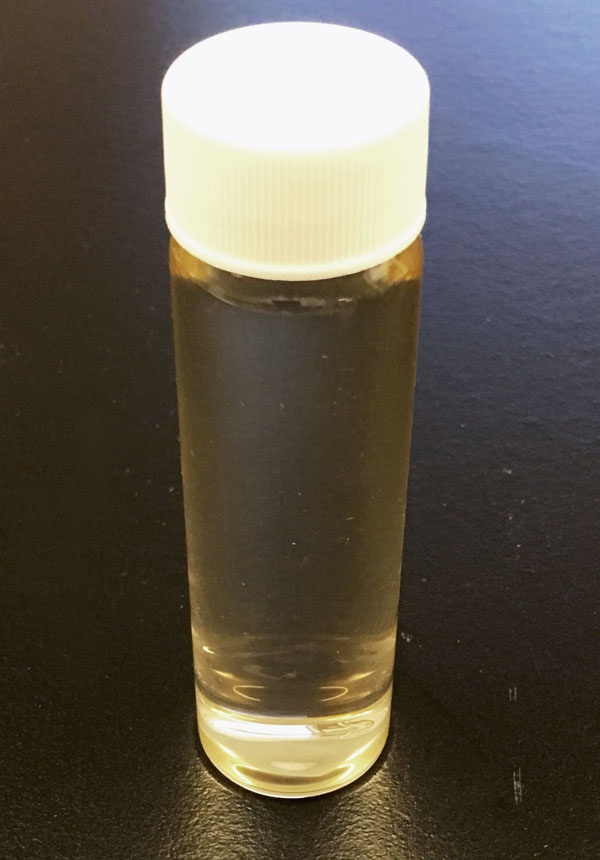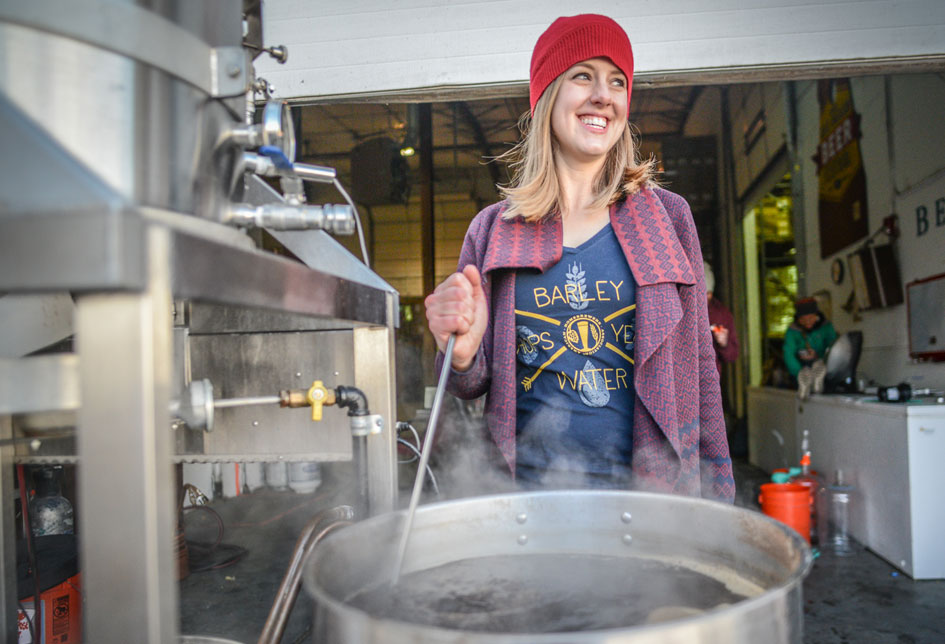
Written By Kyle McQuillen and Craig Reavill, R&D Chemists at Treatt
There are a number of ways to extract flavors from natural ingredients; the most practical for homebrewers are:
- Boiling: simmering with sugar to make a sugar syrup extract
- Hot water soaking
- Cold water soaking, then pressing
- Steeping in high ABV spirits
- Steaming or pressure cooking
The name of the game when creating extracts is to expose as much of the surface area of the fruit, vegetable, spice or flower as possible, to maximize extraction. This can be done by finely chopping, grating, bruising or crushing.
With ginger root, two of the best methods are steeping in high ABV spirits and simmering with sugar to create a syrup based extract.
Ginger is a unique flavor source. It is pungent and spicy and can add a nice complexity to many styles of beer. Ginger is the underground rhizome of the Ginger plant (Zingiber officinale). It has a firm texture and is quite fibrous, which can make it a challenge to work with. Making a ginger extract can be labor intensive but the end result is worth the extra effort. Below are two methods of making a ginger extract at home:
- Alcoholic extract: produces a clean ginger flavor with little to no heat
- Syrup extract: provides a spicy yet flavorful extract
Ginger Alcoholic Extract
- 450 ml vodka (minimum 40 percent ABV (although the higher the better)
- 45 g fresh ginger root (after peeling and slicing)
Peel the ginger and slice fine enough to fit through the neck of a suitable bottle.
Add the vodka and shake twice daily (minimum) until desired flavor intensity has been extracted. The longer you let it sit, the more intense the flavor becomes.

This should take between two and six weeks depending on taste preferences. It should then be filtered to remove all the ginger and small plant fibers. For filtration, cheesecloth, coffee filters or even hop bags will suffice.

Using Ginger Alcohol Extract in Brewing
Volumes can be adjusted—ginger should be used at 0.1 g per ml of vodka. This alcoholic extract provides a clean and fresh ginger flavor with little heat. Dosage rates of extracts will vary widely depending on many factors, including the style of beer, IBUs and quality of bitterness in the beer. Start at very low dosage rates in your beer and work your way up to find the desired flavor profile. With this extract, we would recommend starting at 1000ppm (0.10 percent) by volume post-fermentation and working your way up from there.

Ginger Syrup Extract
- 500 ml water
- 50 g fresh ginger root (after peeling and slicing)
- 100 g sugar (sucrose)
Peel the ginger and bruise (with a rolling pin or similar) to rupture and expose fibers, but not too much to prevent the release of small fibers into the solution.

Place into a saucepan with the sugar and add boiling water. Simmer for 30 to 45 minutes or until the volume has reduced by about half.

The bruised roots will look slightly darker and slightly mushy or slightly cooked. The solution will turn a deep golden color. Cool, then filter and store in the fridge—use within two days.

Using Ginger Syrup Extract in Brewing
Since the ginger is exposed to heat, this syrup extract provides a hot, full-on, yet sweet ginger flavor. This is because Gingerol, a major component of Ginger essential oil, is converted to a compound called Zingerone, which is sweeter than Gingerol but still provides spice to the extract. Again, dosage rates will vary, so add a very small amount to your beer and work up from there. The “spent” bruised ginger can be used for cooking for those culinary-minded people—it tastes great!

It’s worth noting that the syrup extract will provide fermentable sugars. It can be added straight into the fermentation vessel, just before pitching the yeast and the flavors can mature with the brew. Although depending on the strain of yeast used, the flavor profile of the extract could be altered due to biochemical transformations initiated by our favorite microorganism.
The other way to use the syrup extract would be to add it post-fermentation, either in place of the priming sugar when bottle conditioning or after cold crashing when kegging the brew. With a specific gravity of approximately 1.151, this will slightly increase the final gravity of your beer.
The extracts above are very simple to make and extremely powerful. With ginger, your method of extraction will depend on if you want that extra heat in your beer. The syrup extract will pack quite a punch, so be conservative when adding to your beer. You could even go all out and use them in combination, adding the syrup extract pre and or post fermentation, as well as the alcoholic extract to enhance the final top note, thus giving the full spectrum of ginger to your latest creation.
Sources
Connel, DW and Sutherland MD. “A re-examination of gingerol, shogaol, and zingerone, the pungent principles of ginger.” Australian Journal of Chemistry 22-5 (1969): 1033-1043.
Phung, Alice. “Ginger.” https://scienceandfooducla.wordpress.com/2014/09/30/ginger/. Science and Food. September 30 2014.
About Treatt
Treatt is a specialist ingredient solutions provider that offers a wide portfolio of natural essences and extracts to the craft beer market, including citrus oils and its range of 100-percent natural Treattarome distillates made up entirely of FTNF ingredients. Treatt partners with its customers to develop new flavor combinations formulate blends and conduct taste trials. It has pilot breweries in both the U.S. and UK to further study brewing science and identify new ways for Treatt to provide value to brewers.
We look into the what, why and how of using natural extracts in brewing on our website TreattBrewSolutions.com take a look to find out more!



Share Post